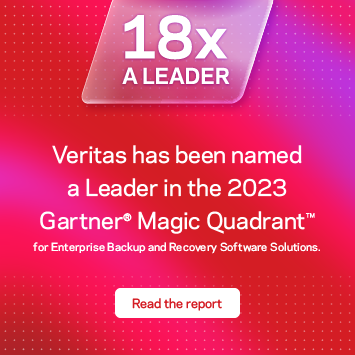- VOX
- Technical Blogs
- Enterprise Data Services Community Blog
- What is an archive?
What is an archive?
- Subscribe to RSS Feed
- Mark as New
- Mark as Read
- Bookmark
- Subscribe
- Printer Friendly Page
- Report Inappropriate Content
In the Enterprise Vault world an archive is a collection of objects which have been pulled-into (or ingested into, as it is sometimes called) Enterprise Vault. This collection of object has a name, and a type. Here are some of the common types that you might encounter:
Mailbox Archive
This is an archive relating to a particular user/mailbox from an Exchange server. This can also include resource mailboxes. This archive is called a 'structured archive' meaning that the folder structure from the mailbox is maintained in the Enterprise Vault archive too. Over time you can see that items from the mailbox are replaced by shortcuts, and the 'full item' is stored in the users archive. Sometimes shortcuts aren't created when archiving, and sometimes the shortcut is deleted by a user, or by the system... the original item though, in full, can still exist in the archive. It can also be more than that though because the mailbox archive can have items ingested to it from PST files. These may never have been in the users mailbox.
These types of archives have new data added to them either by an end user manually archiving items, or more likely by a scheduled task which operates against the users mailbox and applies archiving rules based on policies set by the Enterprise Vault administrator.
Shared Archive
This type of archive is very similar to a mailbox archive, but they are unstructured. They don't usually have a folder structure. As the name implies they're good for archives where a team need to share some common elements, documents, or files. Once these have been created an administrator then has to set the appropriate permissions on the archive, so that all the required users can access it. It's worth remembering that these types of archive are not added to automatically, it's a matter of manually adding data to them.
Journal Archive
An environment usually has either one or a few of these. These are an unstructured or flat archive. The folder structure isn't relevant since all the items are from the inbox of the Exchange journal mailbox (or mailboxes). Journal archives are typically very busy, as are the mailboxes that they are archiving from. The mailboxes (and therefore the archive) usually contain all mail sent and received by an organisation. A specific feature of Enterprise Vault called Custom Filters can be implemented and these can change what ends up being archived - for example it is possible to create a filter to only archive email that is to be sent outside the organisation.
Journal archiving in Enterprise Vault runs continuously, via a task in the Vault Admin Console.
Those three are probably the most common from the Exchange side of Enterprise Vault. There are quite a few others though, which are tweaked for different aspects of what they come from:
Domino Mailbox Archive
A Domino Mailbox archive is pretty much the same as the Exchange equivalent. It is an archive of items taken from a domino mailbox.
Domino Journal Archive
Like it's Exchange equivalent, Domino can journal items sent through the system. A Domino Journal Archive is a way to store these long term.
SharePoint Archive
This type of archive contains items from a SharePoint environment.
FSA Archive
This type of archive contains files from disk - typically these will be the usual collection of things like spreadsheets, PowerPoint slides, Word documents and so on. You can of course archive any type of file, but these types of archives are usually user or application related. You might archive things like video files, or complex CAD diagrams in order to provide them some long term storage away from your core file servers. It's not uncommon to have very large files in these types of archives.
Public Folder Archive
A public folder archive contains items taken from an Exchange Server Public Folder. These will normally be either emails or posts, but it's not that uncommon to have plain-old documents too. These are some times referred to as free-docs, and these can also be archived by Enterprise Vault and stored in a public folder archive. If you're considering implementing anything like public folder archiving then you have to be careful with thinking about the message classes that will need to be archived. If you elect to just archive IPM.Note and IPM.Post you will miss out on these free-docs, and shared calendars which might be stored in public folders; and that's to name just two types.
You must be a registered user to add a comment. If you've already registered, sign in. Otherwise, register and sign in.
- Understand, Plan and Rehearse Ransomware Resilience series - Design to Recover in Protection
- How to Keep an Air-gap Copy of your Backup Data with Veritas Alta SaaS Protection in Protection
- Direct Migrator: The best way to migrate from Enterprise Vault to Enterprise Vault.cloud in Insights
- Backup Exec 22.0 – Getting started with Microsoft Office 365 Backup in Backup Exec
- Veritas named a Leader in the Gartner Magic Quadrant for Enterprise Information Archiving in Insights

